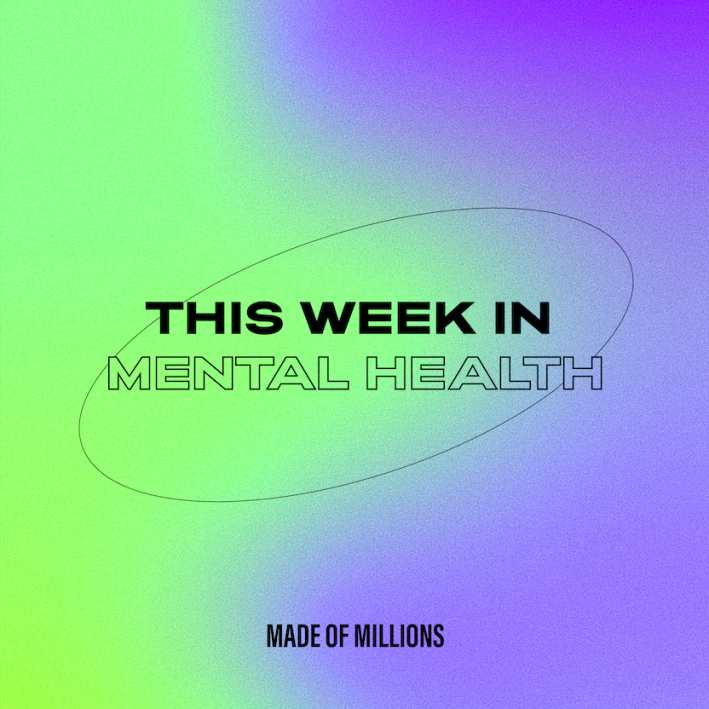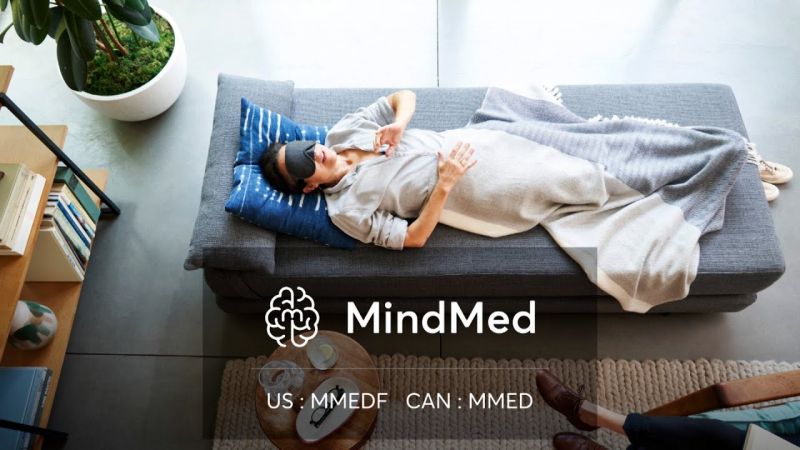This Week in Mental Health
The latest on research and advocacy for the week of February 22nd.
Written by Esther Fernandez

01 Research looks at college students with ADHD, suicide prevention strategies, psychedelics, and more.
02 Supermodel Aweng Ade-Chuol talks refugee mental health, Olympians explain body image in the athletic world, and golfer Bubba Watson opens up about ADHD and anxiety.
Conversations about mental health have grown exponentially over the last decade, with more and more people committing to personal and collective wellness. While we have a ways to go before mental health awareness, education and treatment are accessible to all, each day brings new and positive strides within the field.
Our This Week In Mental Health series covers the latest happenings in research, treatment, human interest stories, and more. Stay updated on new developments so you’re better equipped to navigate the world, and most importantly, your own recovery.
Here’s what’s happening the week of February 22nd.
Research
College Students With ADHD Are Likely To Experience Significant Challenges
A new study shows that college students with ADHD have lower grades and experience a higher risk of dropping out compared to their peers. The research comes from George DuPaul, professor of school psychology and associate dean for research in Lehigh University's College of Education, and is the first to examine functioning of students with ADHD for all four years of college. The research also looked into medication, depressive symptoms, and academic support services.
Which Suicide Prevention Strategies Work?
Columbia University Vagelos College of Physicians and Surgeons released a new study that says a federal approach to suicide prevention can reduce suicide mortality. Researchers found that screening people who are at-risk doesn’t reduce suicides, but training primary care physicians about depression and medication can halve the rates. They also talk about the importance of educating high school students, potential new medication treatments, and more gun safety.
NYU Launching $10M Center for Psychedelic Medicine in Manhattan
NYU Langone Health’s Department of Psychiatry announced they will be creating a Center for Psychedelic Medicine, where they will research how psychedelics can be used as treatment for chronic pain, addiction, and other mental disorders. The NYU Psychedelic Medicine Research Training Program hopes that the center will help in the effort to make psychedelics a more mainstream choice of medication. Donors have given $10 million to support the center.

MindMed Invests $5 Million in NYU Langone for Psychedelic Research Center
Depressed And Out Of Work? Therapy May Help You Find A Job
A new study from the Ohio State Depression Treatment and Research Clinic suggests that cognitive behavioral therapy may help increase chances of finding a job. Of the 126 people who participated, 41% of those who were unemployed or underemployed either found a job or transitioned from part-time to full-time employment by the end of the 16-week CBT course.
Call To Action For Research Ethics In The Time Of Covid-19 And BLM
University of Illinois Chicago faculty members researched how to more ethically conduct research with Black populations. The study includes strategies like looking at historical context, diversifying research teams, ensuring safety, and assessing risks. The authors hope that future research can avoid, "re-traumatizing or perpetuating violence of Black lives as disposable at every point of the research process."
Irregular Sleep Schedules Connected to Bad Moods and Depression
A new study suggests that irregular sleep can increase the risk of depression. Michigan Medicine from the University of Michigan's academic medical center measured the sleep and mood of 2,100 early-career physicians, and found that varying wake-up times can have the same negative effects as staying up late or getting fewer hours of sleep than needed.
People With Depression, Anxiety May Develop Alzheimer's At Younger Age
A new preliminary study reports that those with depression and anxiety may develop Alzheimer's disease symptoms earlier than those without the disorders. With comorbidities, symptoms can show up even earlier. Researchers emphasize that more research needs to be done to see if treatment of psychiatric disorders could prevent or delay onset of dementia for those susceptible to Alzheimer's.
Advocacy
Supermodel Aweng Ade-Chuol Is an Advocate for Refugee Mental Health
Supermodel Aweng Ade-Chuol was the latest guest on the “Seeking Peace” podcast, where she talks about her journey with mental health as a refugee. She was born in the Kakuma Refugee Camp in Kenya, and at the age of seven, moved to Australia. She explains what it was like accostomizing herself to a new culture, and how she wishes she could have had more mental health resources to help her through the process. Now, she works with organizations like War Child and Children in Conflict, who help refugees with mental health.

Aweng on the Importance of Mental Care
Olympians Talk Triggers & Ways To Improve Body Image
Olympians Jessie Diggins, Rachael Flatt, and aspiring Olympian Hannah Halvorsen, talk about body image and eating disorders as athletes. They explain comparison culture and the constant pressure to outperform one another. The article includes how genetics can influence athleticism and eating disorders, but that ultimately, “Genes load the gun and environment pulls the trigger.” The athletes emphasize how coaches can help with preventing triggers.
Bubba Watson Opens Up About Mental Health Struggles
Professional golfer Bubba Watson recently revealed that he has ADHD and anxiety. Excelling in sports and performing often in front of large crowds, he has kept his struggle with social anxiety a secret. The last couple of years have been rough in particular, including hospitalizations because of health anxiety, inability to sleep, and losing weight. He hopes that by speaking up, people will be able to see him more accurately now.
Support our work
We’re on a mission to change how the world perceives mental health.



















